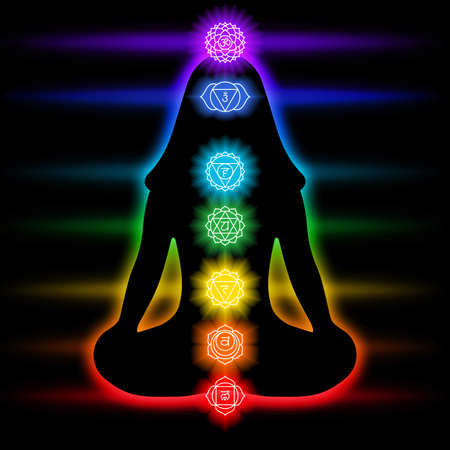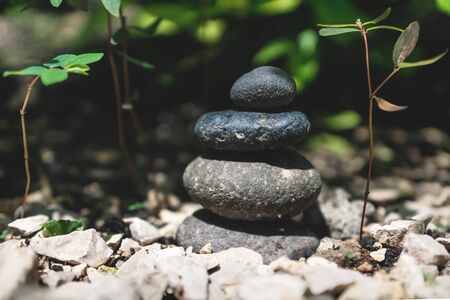1. Introduction: Bridging East and West
In today’s rapidly evolving British society, many are seeking ways to nurture mental well-being and foster a deeper connection to themselves and their communities. While the ancient wisdom of chakra theory originates from the East, its principles offer a gentle, holistic approach that can beautifully complement the British mindset—one grounded in practicality, resilience, and quiet reflection. This article explores how bringing together the time-honoured teachings of the chakras with uniquely British cultural values can encourage mindful living and support overall health. By weaving these traditions together, we open doors to new perspectives on self-care, emotional balance, and everyday vitality—making ancient practices relevant, accessible, and beneficial in our modern lives.
2. Understanding Chakra Theory: Natural Balance and Wellbeing
Chakra theory, originating from ancient Indian traditions, centres around the concept of seven main energy centres within the human body. These chakras are believed to influence our physical, emotional, and mental wellbeing. Each chakra corresponds to a different aspect of life, from our basic sense of security to our capacity for compassion and self-expression. While these ideas may seem distant from modern British culture at first glance, their underlying message—striving for balance and harmony—resonates deeply with the UK’s long-standing appreciation for gentle, natural approaches to health.
The British mindset often favours gradual, steady progress over quick fixes, valuing routines like afternoon tea or countryside walks for their calming effects. In this context, understanding chakras as part of a holistic health practice fits seamlessly into the national love for balanced living. The table below gives a brief overview of each chakra and its potential impact on everyday wellbeing:
| Chakra Name | Location | Associated Quality | Wellbeing Benefit |
|---|---|---|---|
| Root (Muladhara) | Base of spine | Stability & Grounding | Sense of safety; reduced anxiety |
| Sacral (Svadhisthana) | Lower abdomen | Creativity & Joy | Emotional flexibility; enjoyment in daily life |
| Solar Plexus (Manipura) | Stomach area | Confidence & Purpose | Self-esteem; motivation to achieve goals |
| Heart (Anahata) | Centre of chest | Compassion & Love | Healthy relationships; inner peace |
| Throat (Vishuddha) | Throat region | Communication & Truth | Clear expression; honest dialogue |
| Third Eye (Ajna) | Forehead between eyes | Intuition & Insight | Mental clarity; intuitive decision-making |
| Crown (Sahasrara) | Top of head | Connection & Awareness | Sense of purpose; spiritual wellbeing |
This gentle introduction highlights how chakra theory can offer practical support for those seeking a more balanced lifestyle—something that aligns naturally with Britain’s tradition of steady self-care and mindful living.

3. The British Mindset: Tradition, Pragmatism, and Modern Wellness
When considering the ancient wisdom of chakra theory within a British context, it is essential to understand the unique qualities that shape the British mindset. At its heart, British culture has long been defined by a deep respect for tradition. Whether it’s time-honoured afternoon tea rituals, centuries-old gardening practices, or the reverence for historical architecture, there is a strong sense of continuity with the past. This appreciation for tradition provides fertile ground for exploring holistic concepts like chakras, especially when they are thoughtfully adapted to local customs and values.
Alongside tradition sits a hallmark of British character: pragmatism. In daily life, practicality often reigns supreme. Solutions are favoured that blend seamlessly into routines without fuss or drama—“Keep calm and carry on” is more than just a slogan; it’s a way of life. For many in Britain, wellness must be accessible and sustainable, not something fleeting or extravagant. This pragmatic approach means that any wellness practice—including those inspired by ancient systems—must prove its value through gentle integration and tangible benefit.
Modern Britain is also experiencing a quiet yet steady shift towards mindful living and sustainable self-care. There is growing interest in approaches that foster wellbeing in natural, non-invasive ways—from organic wholefoods to woodland walks, from herbal teas to yoga and meditation classes held in community halls. People are seeking balance and harmony amidst busy city life or the rolling countryside alike.
This open-minded but practical pursuit of wellness aligns beautifully with the chakra system’s emphasis on balance, energy flow, and gentle self-awareness. By honouring tradition while remaining firmly rooted in everyday realities, the British mindset offers an ideal environment for integrating ancient wisdom into contemporary wellbeing routines—always with a cup of tea close at hand.
4. Translating Ancient Wisdom: Making Chakras Relevant
The beauty of chakra theory is that, despite its ancient roots in Eastern philosophy, its core principles can be seamlessly woven into the fabric of everyday British life. Rather than viewing chakras as something abstract or distant, practical application can make this wisdom feel both accessible and meaningful. Here are some ways to embrace chakra concepts in familiar settings across the UK:
Mindful Eating with a British Twist
Food has always held a special place in British culture, whether it’s a hearty Sunday roast or a simple cuppa with friends. Mindful eating—paying attention to the colour, taste, and nourishment of your meals—can support chakra balance. For instance, eating root vegetables from local farmers’ markets may help ground the root chakra, while enjoying vibrant berries can energise the throat or crown chakras.
| Chakra | Suggested British Foods | Potential Benefit |
|---|---|---|
| Root (Muladhara) | Beetroot, carrots, potatoes | Grounding & stability |
| Sacral (Svadhisthana) | Oranges, butternut squash | Creativity & joy |
| Solar Plexus (Manipura) | Oats, yellow peppers | Confidence & energy |
| Heart (Anahata) | Kale, broccoli, apples | Compassion & calm |
| Throat (Vishuddha) | Blueberries, plums | Expression & clarity |
| Third Eye (Ajna) | Purple cabbage, blackberries | Intuition & insight |
| Crown (Sahasrara) | Elderflower tea, herbal infusions | A sense of connection & peace |
Connecting with Nature: The British Countryside Advantage
The UK’s green spaces—from local parks to the rolling hills of the Lake District—offer perfect opportunities for reconnecting with oneself and aligning the chakras. A mindful walk along a canal, gardening on an allotment, or simply sitting beneath an old oak tree can all help restore inner balance. Nature immersion supports the heart chakra through feelings of love and interconnectedness while grounding practices benefit the root chakra.
Establishing Calming Daily Rituals: Everyday Mindfulness for Modern Brits
The pace of modern life can be overwhelming. Incorporating small rituals—such as five minutes of deep breathing before your morning tea or journaling at bedtime—can bring calm and focus. These moments don’t need to be elaborate; even lighting a candle during a rainy evening can serve as a gentle reminder to pause and nurture yourself.
A Sample Daily Chakra Ritual for Busy Brits:
| Time of Day | Simple Practice | Chakra Focused On |
|---|---|---|
| Morning | Breathe deeply with a cup of herbal tea by the window | Crown/Third Eye |
| Lunchtime Walk | Notice colours in nature during a stroll through a park or garden square | Heart/Root |
| Evening Wind-down | Write down three things you’re grateful for before bed | Sacral/Solar Plexus/Heart |
Nourishing Body and Spirit in Everyday Life
The key is not to overhaul your entire routine but to gently weave these mindful practices into what you already know and love. By doing so, chakra theory becomes less about distant philosophies and more about cultivating balance and wellbeing within our beloved British landscape.
5. Addressing Skepticism: A Gentle Approach to Acceptance
The British mindset is often characterised by a healthy scepticism and an appreciation for well-founded evidence. This pragmatic approach can sometimes seem at odds with the more intuitive or spiritual aspects of ancient wisdom, such as chakra theory. Yet, it’s entirely possible to explore these traditions in a manner that honours both curiosity and critical thinking.
For those who prefer gentle change, there is no need to abandon one’s rational outlook or established beliefs. Instead, consider viewing chakra theory not as rigid doctrine but as a set of tools for self-reflection and wellbeing. Rather than asking you to accept unproven claims, this approach invites you simply to observe and experiment.
Non-Intrusive Ways to Explore Chakra Wisdom
There are subtle, non-intrusive strategies that allow you to engage with chakra wisdom at your own pace. For example, mindfulness practices—such as breathing exercises or guided meditations—can be tailored to focus on different areas of the body associated with each chakra. These can be seen as opportunities for relaxation and self-care rather than spiritual transformation.
Respecting Personal Boundaries
It’s important to respect personal boundaries and individual comfort levels. If something feels unfamiliar or unnecessary, there is no obligation to go further. Many British people find value in taking small steps, perhaps starting with reading or attending a workshop out of interest rather than conviction.
A Culture of Open-Minded Curiosity
The British tradition of open-minded inquiry has long supported progress in science and the arts alike. By applying this same curiosity to ancient wisdom—without pressure or expectation—you can discover what resonates personally while maintaining a grounded, evidence-based perspective.
Ultimately, chakra theory need not be about belief; it can be about gentle exploration and integrating what feels useful into everyday life. This balanced approach honours both tradition and modern sensibility, allowing ancient wisdom to find its place within the British way of living.
6. Everyday Practices: Local Flavour Meets Ancient Tradition
Blending chakra theory into the British way of life can be a gentle and rewarding process, especially when we draw upon familiar comforts and routines. The beauty of these ancient practices lies in their adaptability—allowing us to honour tradition while embracing what feels natural and nourishing within our own culture. Here are some simple, tangible ways to begin harmonising your energy centres right at home.
Herbal Teas: Sip Your Way to Balance
The classic British cuppa is more than just a tradition; it’s a daily ritual that can be infused with intention. Opt for herbal blends known to support specific chakras—chamomile or lavender for soothing the heart centre, peppermint for clarity and throat expression, or ginger for grounding and energising the root chakra. As you prepare your tea, take a mindful pause, noticing the aroma and warmth, allowing each sip to become an act of self-care and balance.
Gardening: Cultivating Roots and Calm
Many Britons cherish time spent in the garden, tending to flowers, herbs, or even vegetables. This earthy activity naturally grounds the body and supports the root chakra by connecting us with nature. As you dig, plant, or simply walk barefoot on the grass, try focusing your attention on the sensations beneath your feet and the rhythm of your breath. Gardening becomes not just a hobby, but a meditative practice that nurtures both body and spirit.
Mindful Meal Preparation: Nourishment with Purpose
The British kitchen offers many opportunities for mindful moments—from preparing a Sunday roast to assembling a simple sandwich. As you chop vegetables or stir porridge, bring awareness to colours, textures, and scents, imagining how each ingredient nourishes different chakras. For example, root vegetables can help ground you during stressful times, while leafy greens may uplift your heart space. Setting aside distractions at mealtimes allows you to eat with gratitude and awareness.
Other Gentle Rituals for Daily Life
- Morning Walks: Embrace the British love of countryside rambles by taking mindful walks through parks or along riversides. Notice your surroundings with all your senses.
- Aromatherapy: Incorporate essential oils such as lavender or rosemary into your home environment to gently support emotional balance.
- Candlelight Evenings: Light a candle during your evening wind-down—a simple way to create calm energy before bed, supporting restful sleep and mental clarity.
Naturally Weaving Wisdom Into Routine
You don’t need elaborate rituals or exotic ingredients to support chakra harmony in everyday British life. By weaving intention into cherished local habits—whether it’s sipping herbal tea by a rain-dappled window or savouring seasonal produce—you allow ancient wisdom to quietly enhance modern wellbeing. The result is a lifestyle that feels both familiar and deeply nurturing.
7. Conclusion: Nurturing Balance for Modern Britain
As we reflect on the journey through chakra theory and the British mindset, it becomes clear that there is a gentle harmony waiting to be embraced between ancient wisdom and contemporary life in the UK. While the pace of modern Britain can often feel relentless, making space for balance and wellbeing is not only possible but essential. The chakras offer a holistic framework—a gentle reminder to tune inwards, listen to our bodies, and recognise our emotional needs as naturally as we check the weather before leaving home.
By weaving these ancient principles into daily routines—perhaps with a mindful walk along a misty canal, or by sharing a wholesome cuppa with a friend—we can nurture resilience and calm amidst life’s demands. It is not about rigidly adhering to tradition, but about finding what resonates within our local context: enjoying the green spaces of our towns, pausing for breath at the seaside, or simply allowing ourselves a moment of stillness during a busy day.
Let us encourage each other to honour both heritage and individuality, drawing from chakra wisdom to support mental clarity, emotional strength, and physical vitality. As we strive for balance in modern Britain, may we all find small yet meaningful ways to care for ourselves and those around us—making ancient insights work gently and naturally in today’s world.

